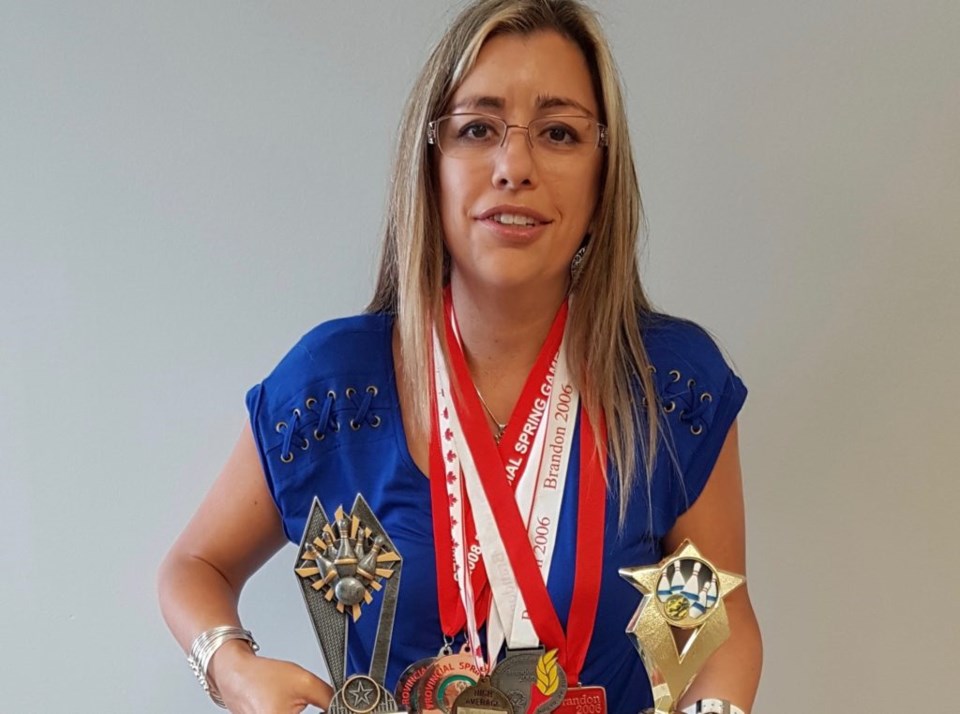
Andrea Bartal was introduced to Special Olympics as a teenager, and more than 25 years later, the organization is still an important part of her life.
At the time, she was just getting used to life as a high school student, having left behind some difficult years in elementary school where she remembers being teased and feeling like an outcast.
“Public school was not a good experience,” she says.
She had suffered health problems since birth, both physical and developmental, and was diagnosed at a young age with neurofibromatosis, which caused hearing impairment, and another rare syndrome that resulted in weakness on her right side and poor balance. She was a sickly child, says her mother, Helen McCallum, and had several surgeries to improve her hearing. But through determination and strong family support — and her experience with Special Olympics from the age of 14 — she has worked hard to overcome her difficulties.
She says she was fortunate to have teachers in high school who were accustomed to working with children with disabilities. “They could see what I could do, and I started making more friends. I heard about Special Olympics from a friend in high school, and joined in Durham, where we lived then.”
When she was younger, Andrea was interested in baseball and cross-country skiing, but she came to love and excel in bowling, both five and 10-pin. She began to both play and compete in those sports through Special Olympics, a grass-roots organization that is now international in its support for children and adults with intellectual disabilities through year-round opportunities and accessibility to sports. It encourages participants by giving them a level playing field regardless of their skill, that allows them to gain self-confidence and self-esteem, as Bartal says it has done for her.
The organization works on a provincial, national and international level, but it begins with community chapters created to help local people with intellectual disabilities.
Nancy Bailey, a real estate broker, is working to establish a chapter in Niagara-on-the-Lake.
She has recently set up a Mary Street office as a broker and advisor with Engel & Volkers, an international company which has been supporting Special Olympics as its cause since 2015. She said she decided as soon as she got her office up and running, she wanted to introduce Special Olympics to NOTL, which is in the South Central district of the Ontario chapter.
She learned there is a role for the organization to help locals, and hopes to move forward, probably picking one sport initially and then hoping to grow. She has discovered the St. Catharines chapter has a waiting list for those who want to play basketball, and with good facilities here in town, that may be a start.
It could also mean ensuring local athletes have the equipment and uniforms they need, the training to help them progress in their sport, and the funds to travel to competitions, she says, while developing coaches and volunteers to support the athletes.
Bartal and McCallum both want to be involved, to help others find the support and encouragement they found through Special Olympics.
“I’ve stuck with it for 26 years,” says Bartal. “I’ve had a lot of opportunities, competing at different levels. I’ve been chosen to bowl with master bowlers. I’ve been to nationals to compete, and won a silver medal.”
She had hoped that would take her to the international level of competition, but she had won at five-pin bowling, and only 10-pin was included that year.
Her participation in sports, she says, has allowed her a “more well-rounded life.” It has given her a purpose. It still drives her to work hard and improve — she plays twice a week — and has given her a social environment in which to thrive.
For some participants, says McCallum, “it’s the only thing that gets them out into the world, especially if they don’t have family around to support them.”
Bartal says she would like to volunteer to help others, and McCallum is open to talking to parents about the organization and the help it can provide. Some parents may not be comfortable talking about their children’s disabilities, and benefit from meeting others in similar situations.
“I’ve always been open and upfront about Andrea,” she says. “She has some learning disabilities, and we’ve never tried to hide that. Andrea never had a reason to feel badly about herself, and Special Olympics gave her many reasons to feel good about herself. I’m open to talking to parents about how it can help them.”
She recalls how much it meant to her to meet parents who were experiencing similar issues, and says she would encourage Special Olympics for the benefits to parents and their children. She suggests going online to find what sports are available in Niagara through the organization, and getting involved. “It’s inclusive of everyone, with a level playing field.”
“Everyone has a fair chance,” chimes in Bartal. “You always have an opportunity to play.”
Anyone interested in becoming involved or looking for more information can call Bailey’s office at 905-468-4700, or reach her at 905-371-4234.